
Otavalo: The Vibrant Heart of Ecuadorian Culture
Nestled in the Andean highlands, Otavalo is a picturesque town renowned for its rich indigenous culture and vibrant markets. The town is surrounded by stunning natural beauty, including towering volcanoes and serene lakes, making it a perfect destination for both cultural enthusiasts and nature lovers. The highlight of Otavalo is undoubtedly its world-famous market, held every Saturday at Plaza de Ponchos. Here, you can find an array of colorful textiles, handcrafted jewelry, and intricate pottery. The market is a sensory feast, with the air filled with the scent of traditional foods and the vibrant sounds of local musicians. Beyond the market, Otavalo offers a deep dive into Ecuadorian traditions. Visit the Peguche Waterfall, a sacred site for the indigenous community, or take a short trip to the nearby town of Cotacachi, known for its high-quality leather goods. For those interested in local history, the Otavalo Museum provides a fascinating insight into the area's past. Nature enthusiasts will be thrilled by the opportunities for outdoor adventures. Hike up the nearby Imbabura Volcano for breathtaking views, or take a peaceful boat ride on the tranquil waters of Lake San Pablo. The surrounding landscapes offer numerous trails for trekking and bird-watching, making Otavalo a haven for eco-tourism.
Local tips in Otavalo
- Visit the market early on Saturday mornings to avoid the crowds and get the best deals.
- Bring cash, as many vendors do not accept credit cards.
- Wear comfortable shoes for walking around the market and exploring the town.
- Try the local food stalls for an authentic taste of Ecuadorian cuisine.
- Learn a few basic Spanish phrases to enhance your interactions with local vendors.
Otavalo: The Vibrant Heart of Ecuadorian Culture
Nestled in the Andean highlands, Otavalo is a picturesque town renowned for its rich indigenous culture and vibrant markets. The town is surrounded by stunning natural beauty, including towering volcanoes and serene lakes, making it a perfect destination for both cultural enthusiasts and nature lovers. The highlight of Otavalo is undoubtedly its world-famous market, held every Saturday at Plaza de Ponchos. Here, you can find an array of colorful textiles, handcrafted jewelry, and intricate pottery. The market is a sensory feast, with the air filled with the scent of traditional foods and the vibrant sounds of local musicians. Beyond the market, Otavalo offers a deep dive into Ecuadorian traditions. Visit the Peguche Waterfall, a sacred site for the indigenous community, or take a short trip to the nearby town of Cotacachi, known for its high-quality leather goods. For those interested in local history, the Otavalo Museum provides a fascinating insight into the area's past. Nature enthusiasts will be thrilled by the opportunities for outdoor adventures. Hike up the nearby Imbabura Volcano for breathtaking views, or take a peaceful boat ride on the tranquil waters of Lake San Pablo. The surrounding landscapes offer numerous trails for trekking and bird-watching, making Otavalo a haven for eco-tourism.
When is the best time to go to Otavalo?
Iconic landmarks you can’t miss
Plaza de Ponchos
Experience the vibrant colors and rich culture of Otavalo at Plaza de Ponchos, a must-visit market for unique handcrafted goods and local traditions.
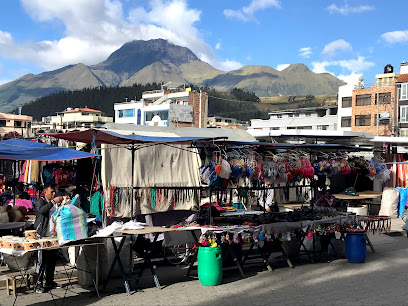
Peguche Waterfall
Discover the breathtaking beauty and rich culture surrounding Peguche Waterfall in Otavalo, Ecuador - a must-visit natural attraction for all travelers.
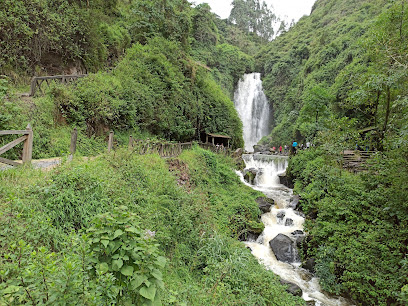
Cabañas del Lago
Discover the serene beauty of Cabañas del Lago, a lakeside haven in Ecuador perfect for relaxation and adventure amidst stunning landscapes.
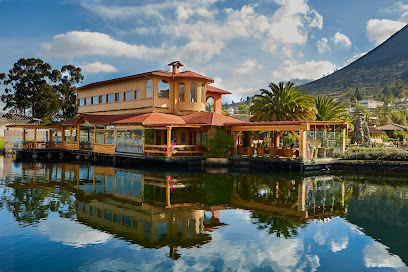
Parque del Condor
Discover the majestic Andean condor and experience the beauty of Ecuador's wildlife at Parque del Condor, a premier animal park in Otavalo.
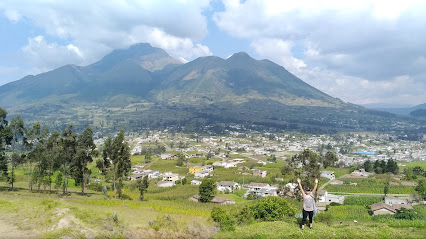
Mirador San Miguel Arcangel
Explore the stunning landscapes of Ibarra from the breathtaking Mirador San Miguel Arcangel, where every view tells a story.
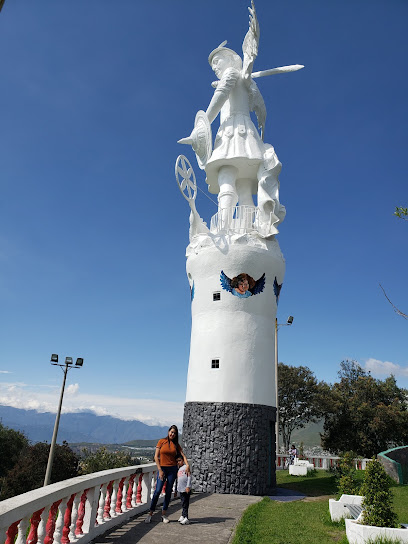
HOSTAL LA ROSA OTAVALO
Experience authentic Ecuadorian culture and comfort at Hostal La Rosa, your ideal base in the heart of Otavalo's vibrant markets and stunning landscapes.
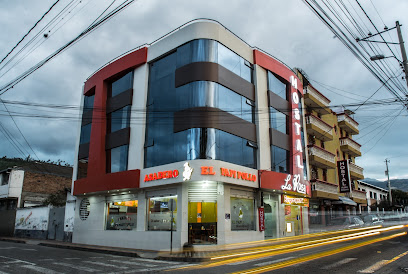
Pucará de Rumicucho / Ruins / Ruinss
Explore Pucará de Rumicucho, an archaeological site in Ecuador that unveils ancient history amidst stunning natural beauty.
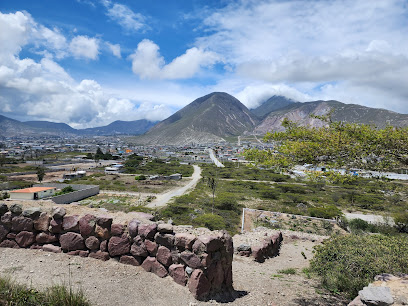
Quitsato Solar Clock
Discover the unique Quitsato Solar Clock, where ancient timekeeping meets modern exploration on the equator in Ecuador.
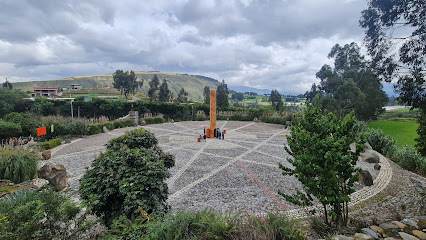
Puertolago Country Inn & Resort
Discover the serene beauty of Lago San Pablo at Puertolago Country Inn & Resort, your perfect getaway in the heart of Ecuador's Andes.
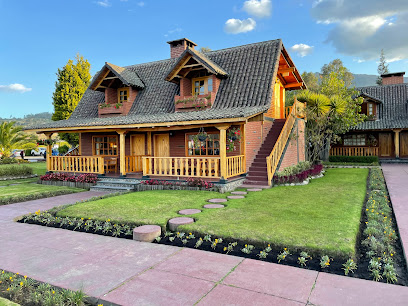
La Cosecha Coffee & Bakery
Experience the flavors of Ecuador at La Cosecha Coffee & Bakery in Otavalo, where every cup of coffee and pastry tells a story.
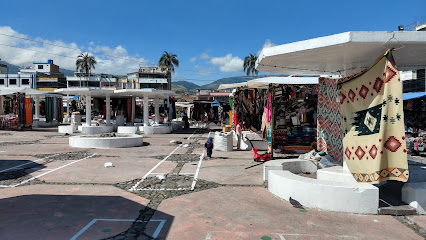
El Lechero
Discover breathtaking views and rich cultural heritage at El Lechero, Otavalo's premier observation deck and tourist attraction.
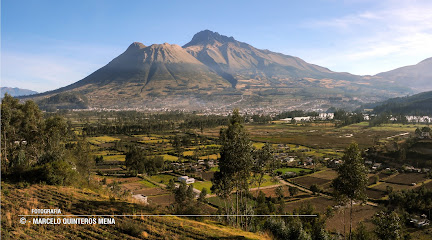
Parroquia San Francisco
Explore the spiritual and cultural richness of Otavalo at Parroquia San Francisco, a stunning Catholic church and vibrant tourist attraction.
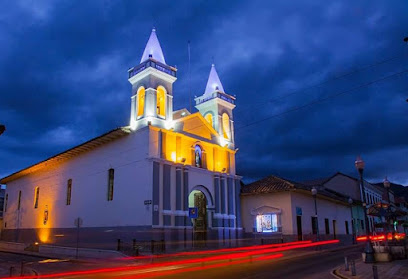
Antigua Fabrica San Pedro
Explore the vibrant textile heritage of Otavalo at Antigua Fabrica San Pedro, a museum showcasing Ecuador's rich cultural art.
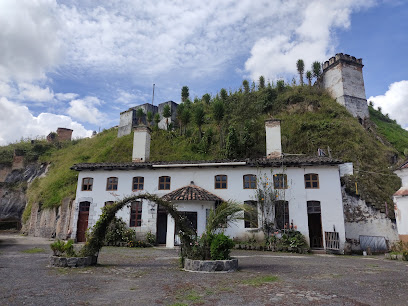
Waterfall Taxopamba
Experience the breathtaking beauty of Waterfall Taxopamba in Otavalo, Ecuador, a hidden gem for nature lovers and adventure seekers.
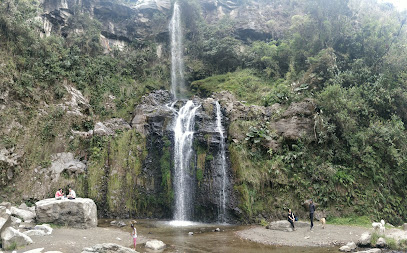
Hotel Doña Esther & Árbol de Montalvo restaurante
Discover the charm of Otavalo at Hotel Doña Esther & Árbol de Montalvo, where local culture meets modern comfort amidst breathtaking Andean landscapes.

Unmissable attractions to see
Middle of the World City
Explore the Middle of the World City in Quito, Ecuador, where the equator comes alive through culture, history, and breathtaking views.
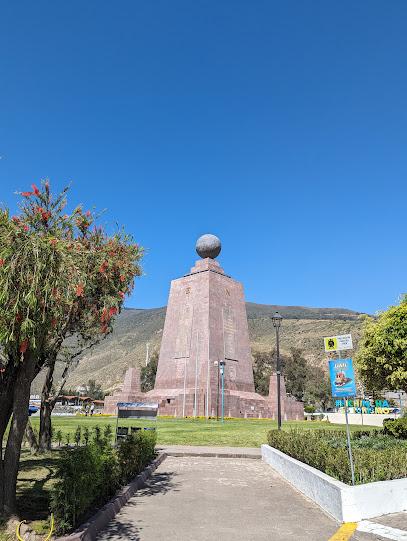
Parque Bicentenario
Explore Parque Bicentenario, Quito's lush urban park blending natural beauty with cultural experiences for an unforgettable visit.
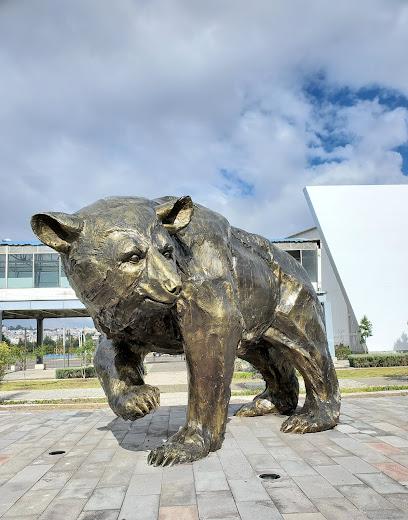
Pululahua Geobotanical Reserve
Explore the breathtaking landscapes and diverse ecosystems at Pululahua Geobotanical Reserve, a unique volcanic crater in Ecuador.
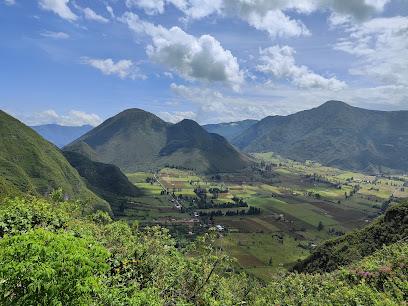
Peguche Waterfall
Explore the stunning Peguche Waterfall in Otavalo, Ecuador, where nature and culture merge in a spectacular display of beauty and serenity.
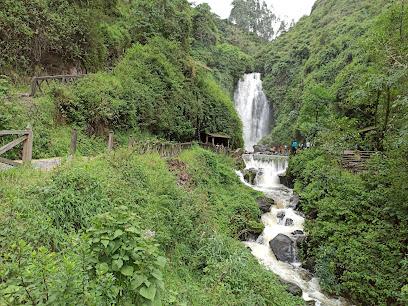
Parque Yaznan
Experience the stunning landscapes, vibrant flora, and outdoor activities at Parque Yaznan in Cayambe, Ecuador's tranquil natural escape.
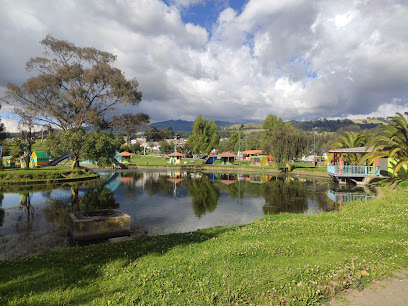
Simón Bolívar Park
Explore the beauty and cultural richness of Simón Bolívar Park, a must-visit destination in Otavalo, Ecuador for every traveler.
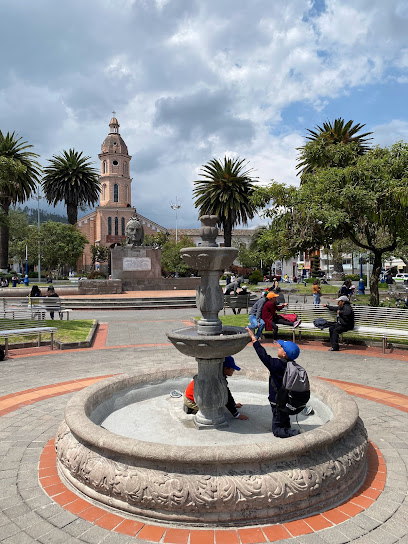
Intiñan Equator Museum
Discover the unique science and vibrant cultures at the Intiñan Equator Museum in Quito, a must-visit tourist attraction at the equatorial line.
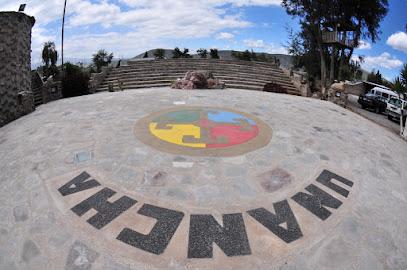
Parque Central de Cotacachi.
Explore Parque Central de Cotacachi, a tranquil park in the heart of Cotacachi, offering lush gardens, local culture, and stunning views of the Andes.
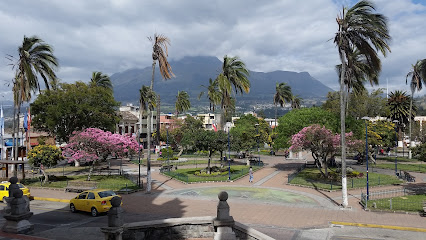
Condor Park
Explore the breathtaking beauty of Condor Park in Otavalo, a sanctuary for Andean condors and native birds, where conservation meets adventure.
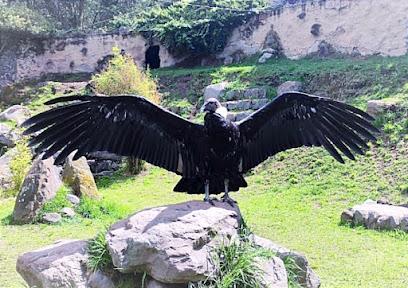
Nayón Xtreme Valley
Discover Nayón Xtreme Valley, a thrilling theme park in Ecuador offering water slides, pools, and breathtaking Andean views for an unforgettable adventure.
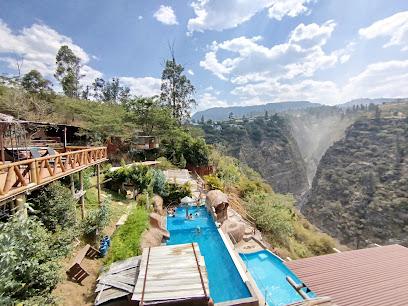
Museo Templo del Sol Pintor Cristobal Ortega Maila
Explore the vibrant artistic heritage of Ecuador at Museo Templo del Sol, a cultural gem in Quito showcasing Cristobal Ortega Maila's masterpieces.
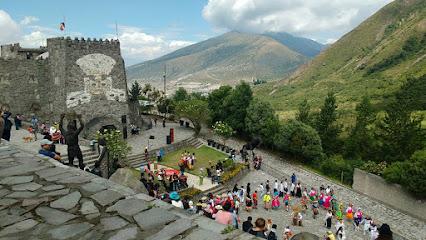
Criadero de venados
Immerse yourself in the beauty of nature at Criadero de Venados, a captivating wildlife sanctuary showcasing majestic deer in their natural habitat.
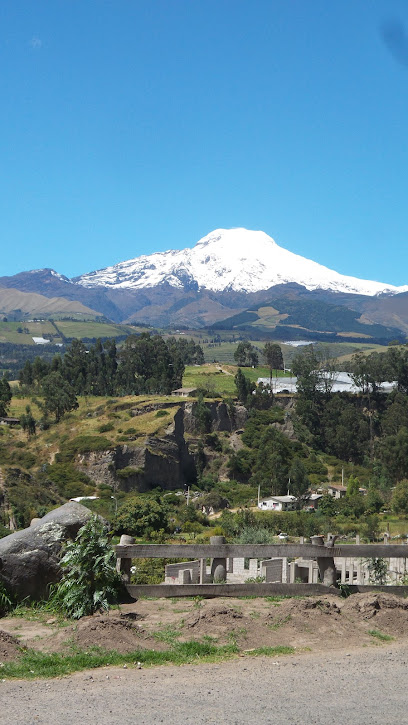
Mirador de Laguna de Yahuarcocha
Discover the stunning views and tranquility at Mirador de Laguna de Yahuarcocha, a must-see destination in Ecuador's Ibarra region.
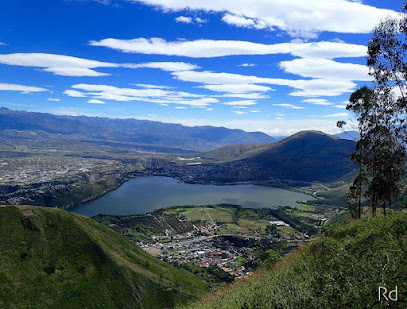
San Sebastián Park
Explore the lush greenery and vibrant culture of San Sebastián Park in Otavalo, a perfect escape for relaxation and local experiences.
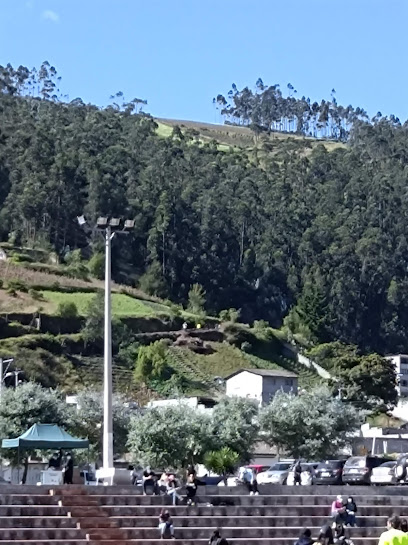
Cochasqui Archaeological Park
Explore the ancient earthworks and rich history of Cochasqui Archaeological Park in Ecuador, a must-visit for culture and history enthusiasts.
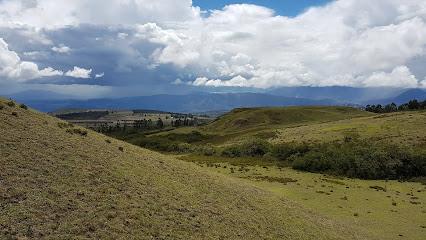
Essential places to dine
Parrilladas Tío Jessy
Experience the authentic taste of Ecuador at Parrilladas Tío Jessy in Otavalo—where delicious grilled meats meet warm hospitality.
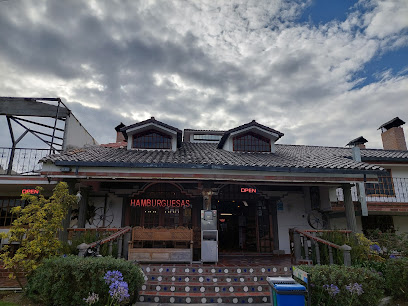
100% Chonero
Experience the best seafood in Otavalo at 100% Chonero - where freshness meets tradition in every bite.
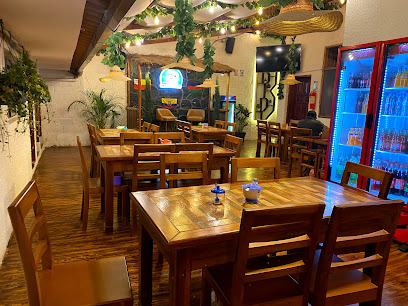
La Taberna Bar&Grill Otavalo
Experience authentic Ecuadorian cuisine at La Taberna Bar&Grill in Otavalo - where every bite tells a story.
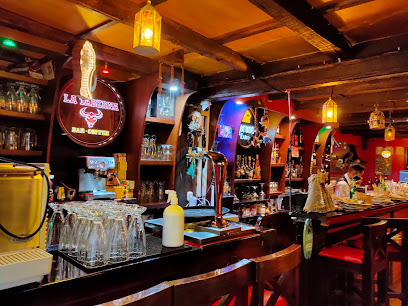
Inty-Huasi
Discover authentic Ecuadorian cuisine at Inty-Huasi in Otavalo – where tradition meets flavor in every bite.
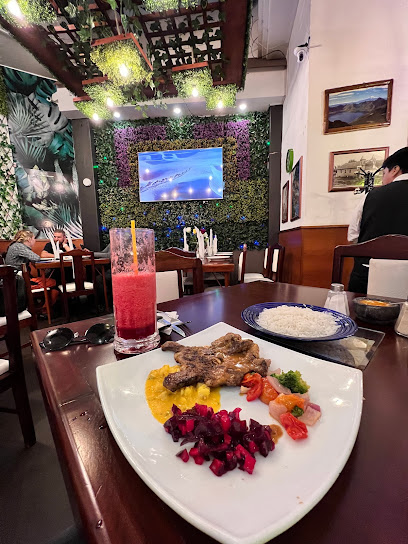
Pakari Tambo
Experience authentic Ecuadorian cuisine at Pakari Tambo in Otavalo - where tradition meets flavor.
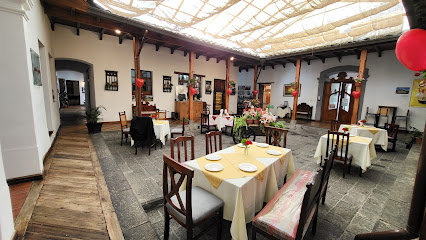
Balcon De Imbabura
Discover authentic Mexican cuisine at Balcon De Imbabura in Otavalo – where every dish tells a story.
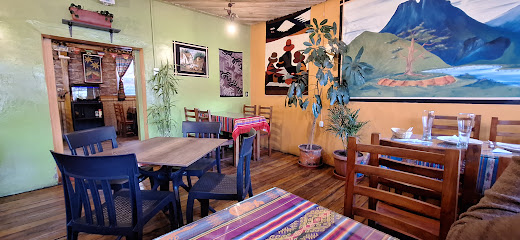
Buena Vista
Discover authentic Ecuadorian flavors at Buena Vista in Otavalo’s vibrant Plaza de Ponchos – where tradition meets taste.
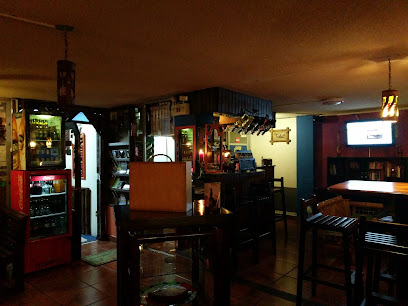
La Covacha de la Bolivar
Experience authentic Ecuadorian seafood at La Covacha de la Bolivar in Otavalo – where freshness meets tradition.
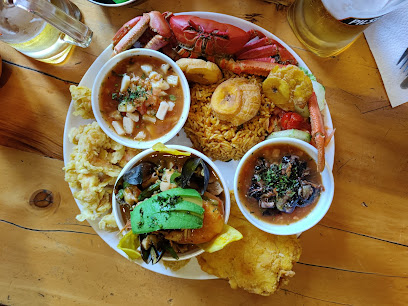
GARDEN RESTAURANTE
Experience authentic Ecuadorian cuisine at Garden Restaurante in Otavalo - a delightful culinary journey awaits you!
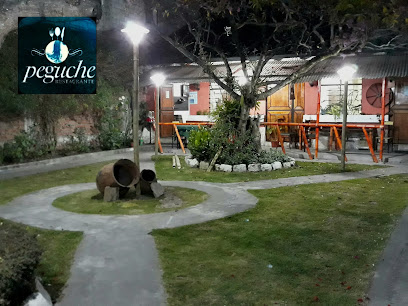
Sabor Imbabureño
Experience authentic Ecuadorian cuisine at Sabor Imbabureño in Otavalo – where traditional flavors come alive in a vibrant setting.
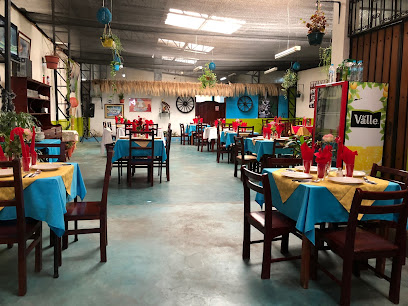
aLabuena Bar & Lounge Otavalo
Experience delightful American cuisine and vibrant nightlife at aLabuena Bar & Lounge in Otavalo.
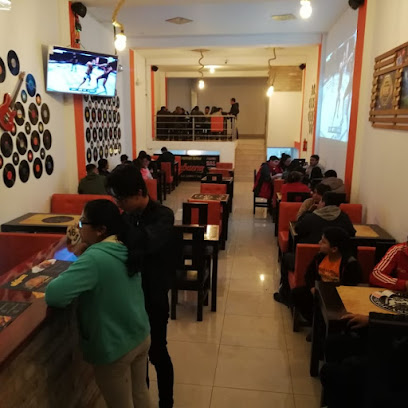
Restaurante La Palma
Experience authentic Ecuadorian cuisine at Restaurante La Palma in Otavalo - where tradition meets taste in every dish.
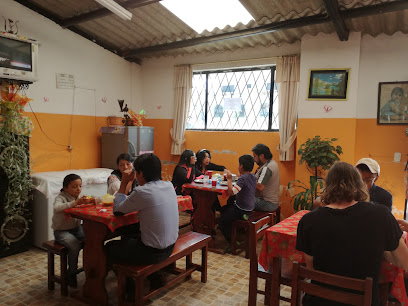
La Esquina Otavalo
Experience delicious hamburgers and Ecuadorian flavors at La Esquina Otavalo, your go-to fast food destination in the heart of Otavalo.
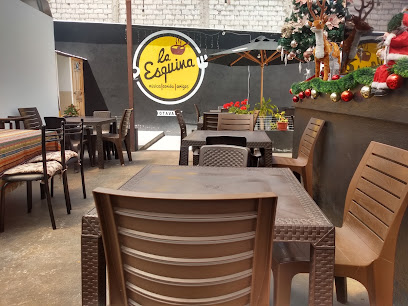
Fuya Restaurante
Experience authentic Ecuadorian flavors with a modern twist at Fuya Restaurante in Otavalo - a paradise for food lovers.
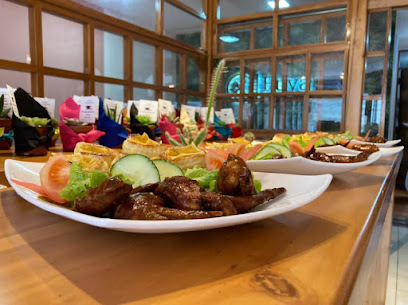
Casa Farol Restaurante
Discover authentic Ecuadorian cuisine at Casa Farol Restaurante in Otavalo – where every dish tells a story.
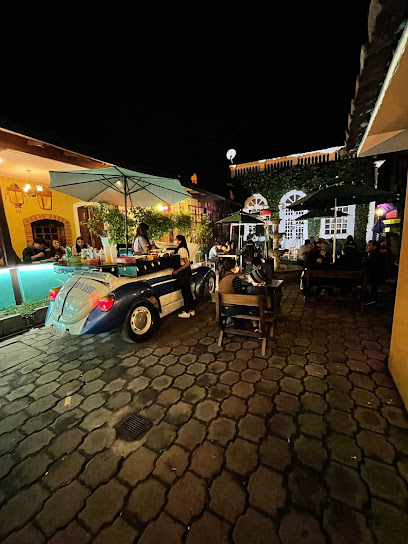
Markets, malls and hidden boutiques
Plaza de Ponchos
Experience the rich culture and vibrant craftsmanship at Plaza de Ponchos, the ultimate shopping destination in Otavalo, Ecuador.
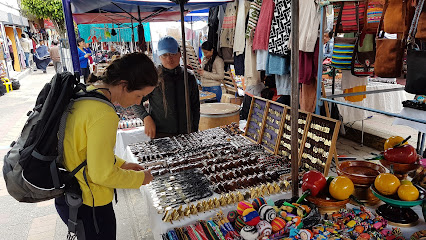
Mercado Municipal 24 De Mayo
Explore the lively Mercado Municipal 24 De Mayo in Otavalo for a true taste of Ecuadorian culture, crafts, and cuisine.
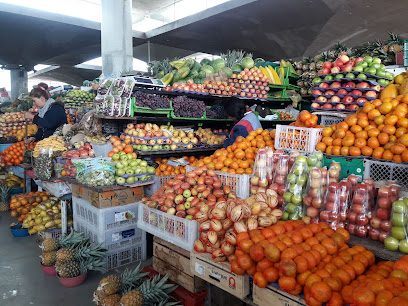
TAYTA WASI (Specialty Coffee & Meeting Space)
Experience the rich flavors of Ecuadorian coffee at Tayta Wasi, Otavalo's specialty coffee shop and inviting meeting space.
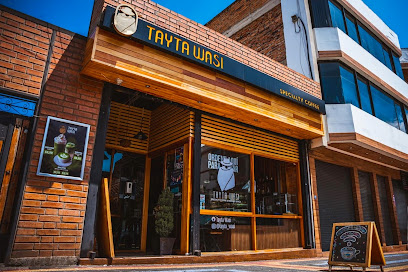
ACTIVE shopping
Explore the best of Otavalo with stylish and comfortable boots from Active Shopping, the ultimate stop for footwear enthusiasts.
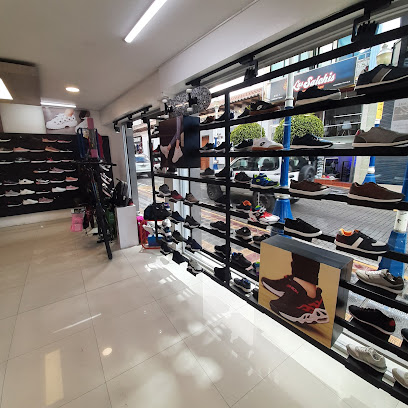
Sombreros Shaman
Discover the vibrant culture of Ecuador at Sombreros Shaman, a unique hat shop in Otavalo offering exquisite handcrafted hats.
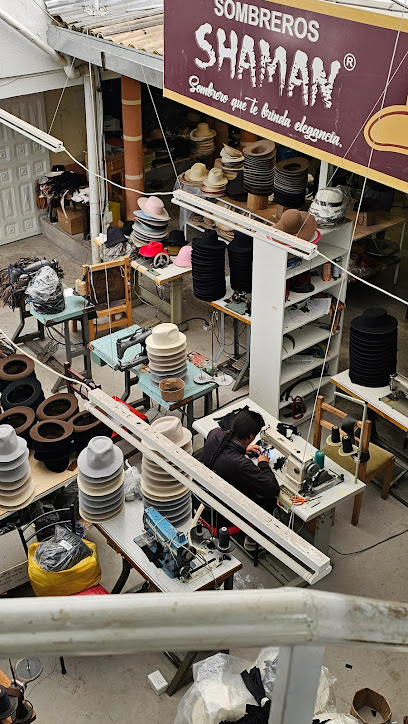
Peguches'art
Explore Peguches'art in Otavalo, where elegance meets craftsmanship in formal wear for every special occasion.
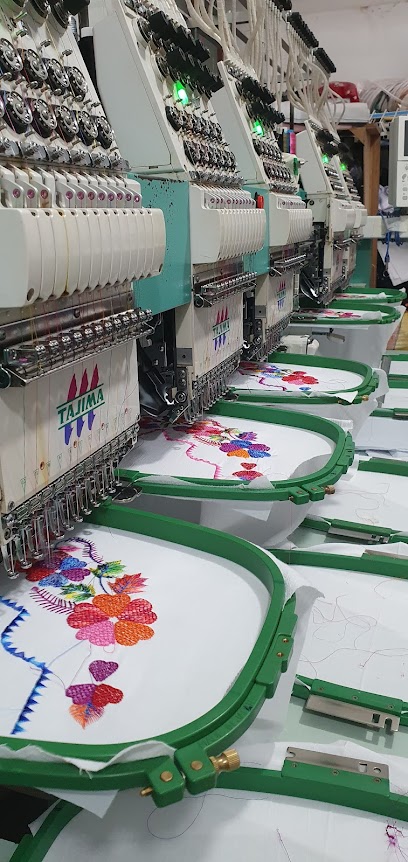
Victoria Boutique Otavalo
Explore unique Ecuadorian fashion at Victoria Boutique Otavalo, where tradition meets modern style in a vibrant shopping experience.
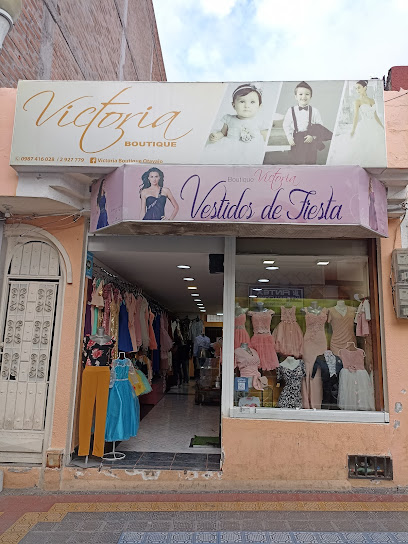
Etnia & Tricolana
Discover the vibrant world of Otavalo's textiles at Etnia & Tricolana, your go-to shop for authentic Ecuadorian clothing and wool products.
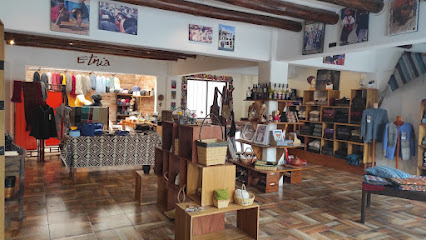
Sacha Instrumentos Andinos Otavalo
Explore the rich sounds of Andean culture at Sacha Instrumentos Andinos in Otavalo, where music and tradition come alive.
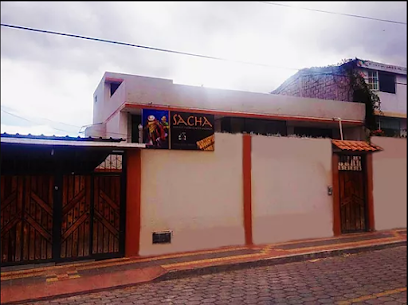
AYAMARKA
Discover unique women's and youth fashion at AYAMARKA in Otavalo, a vibrant clothing store blending local craftsmanship with modern styles.
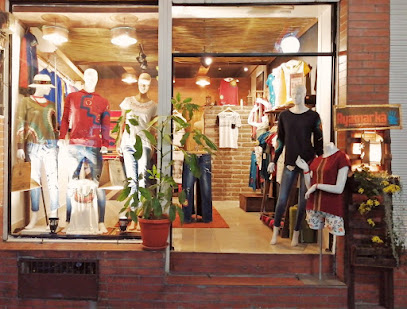
KLAYART (alpargatas y Joyería Artesanal)
Explore the artistry of KLAYART in Otavalo, where unique handmade shoes and jewelry celebrate Ecuadorian culture and craftsmanship.

DERICK OTAVALO
Explore the vibrant textiles of Ecuador at Derick Otavalo, where tradition meets contemporary fashion in a colorful shopping experience.
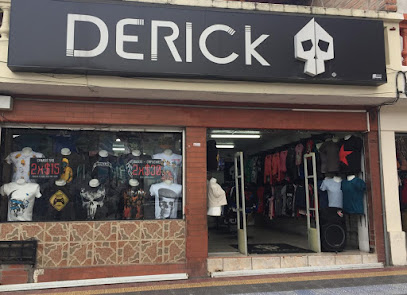
ALX BOUTIQUE OTAVALO
Discover unique Ecuadorian crafts and fashion at ALX Boutique Otavalo, a cultural gem for tourists seeking authentic artisanal products.
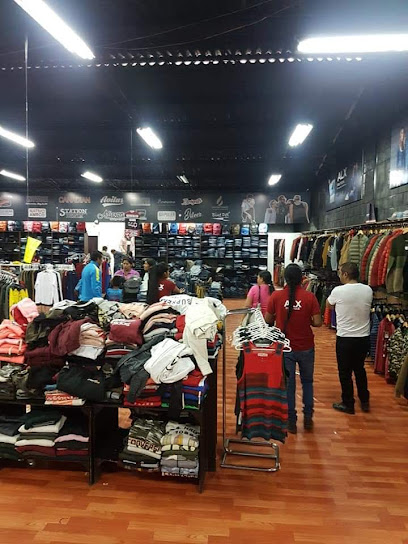
Glamour Boutique
Explore the vibrant styles of Otavalo at Glamour Boutique, your destination for unique clothing and accessories reflecting Ecuador's rich culture.
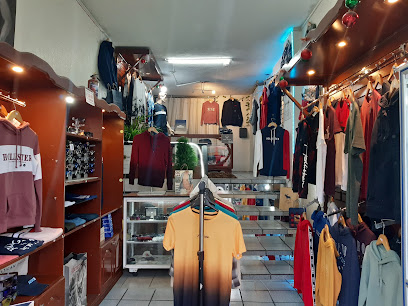
Artesanías Males
Discover the vibrant artistry of Otavalo at Artesanías Males, your go-to craft store for authentic Ecuadorian handmade treasures.
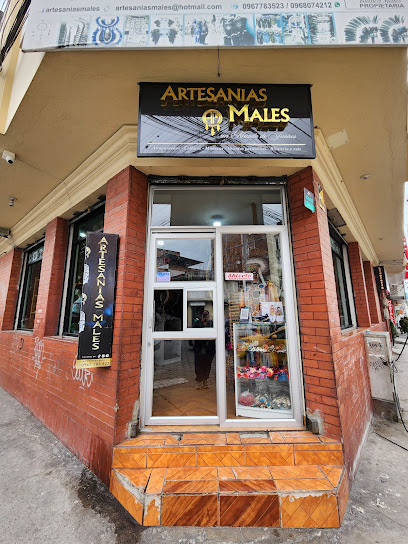
Essential bars & hidden hideouts
La Taberna Bar&Grill Otavalo
Discover the authentic flavors of Otavalo at La Taberna Bar&Grill, where local culinary traditions meet a vibrant dining atmosphere.
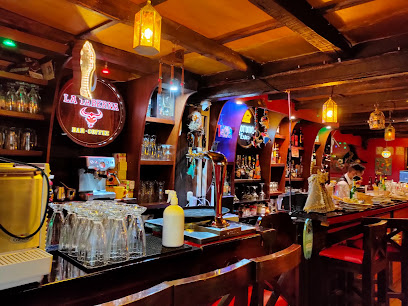
The Red Pub Otavalo
Immerse yourself in the lively ambiance of The Red Pub Otavalo, where delicious food and refreshing drinks await every visitor.
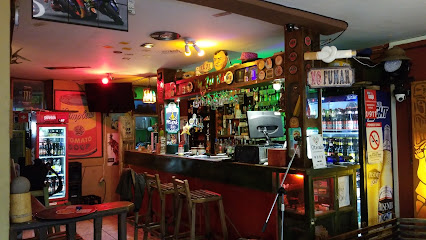
aLabuena Bar & Lounge Otavalo
Experience the fusion of American grill favorites and local flavor at aLabuena Bar & Lounge in Otavalo, Ecuador's vibrant culinary hotspot.
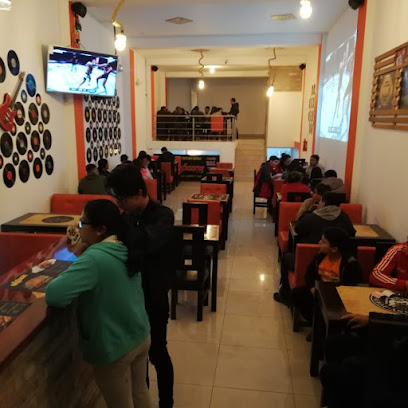
Ninkasi brewery, Cerveza Artesanal
Discover the rich flavors of Ecuador at Ninkasi Brewery in Otavalo, where craft beer meets delicious artisanal cuisine.
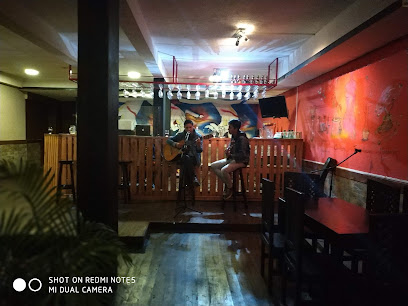
Bar Karaoke Eclipse
Experience the vibrant nightlife at Bar Karaoke Eclipse in Otavalo, where the fun of karaoke meets a lively bar atmosphere.
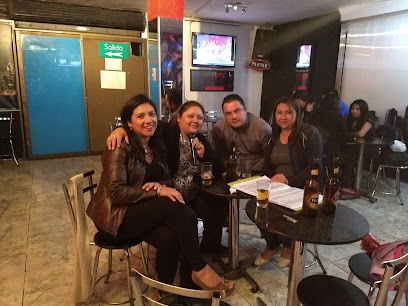
Muyu Beer Garden
Discover the vibrant atmosphere of Muyu Beer Garden in Otavalo, where craft beer meets lush gardens and community spirit.
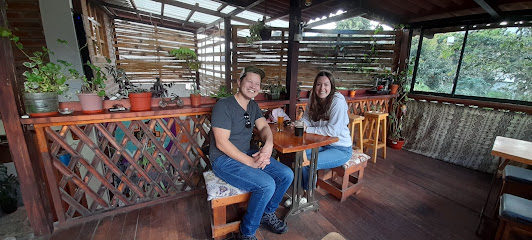
Latitud Cero Cerveza Artesanal
Explore the vibrant craft beer culture at Latitud Cero Cerveza Artesanal in Otavalo, where unique brews meet a welcoming atmosphere.
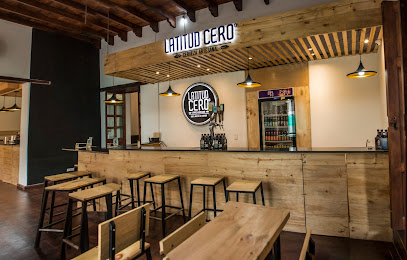
Alitas El Candil - Pub Otavalo
Experience the vibrant flavors and lively atmosphere of Alitas El Candil, a premier pub in Otavalo, Ecuador, specializing in delicious chicken wings.
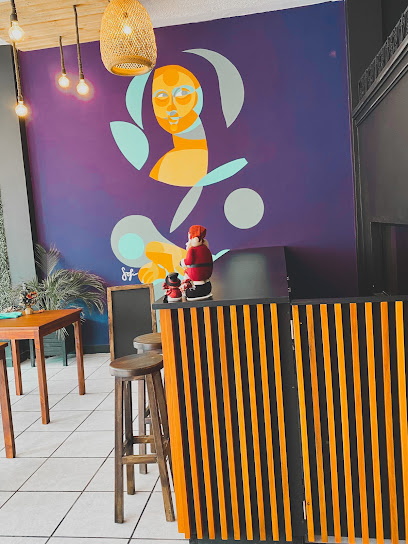
Terrapalma Bar - Restaurant
Experience the authentic taste of Ecuadorian grill cuisine at Terrapalma Bar - Restaurant, nestled in the lively Plaza de los Ponchos, Otavalo.
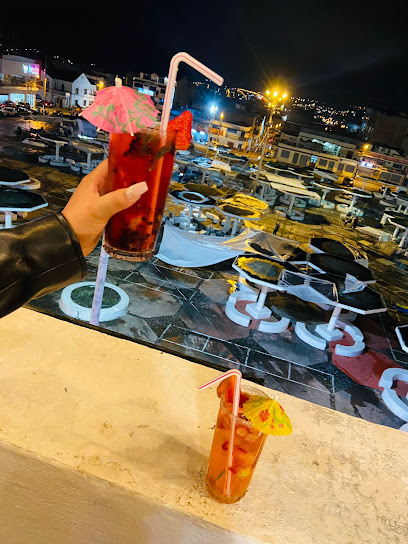
Dublin Irish pub Otavalo
Discover the vibrant culture of Ireland at Dublin Irish Pub Otavalo, where every sip and bite tells a story of hospitality and flavor.
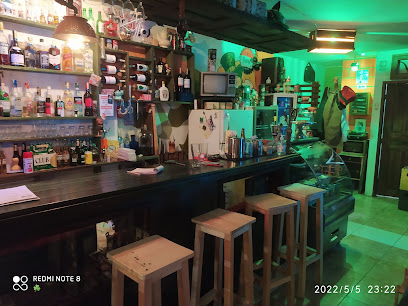
Bîgotte Bistro & Lounge
Discover the vibrant flavors and welcoming ambiance at Bîgotte Bistro & Lounge in the heart of Otavalo, Ecuador.
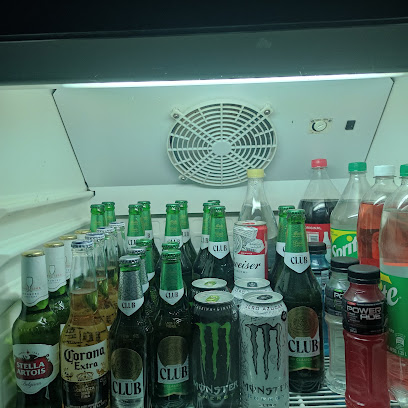
Chivos Bar El callejón 24/7...
Experience the vibrant nightlife of Otavalo at Chivos Bar, where live music and local culture come together for an unforgettable evening.
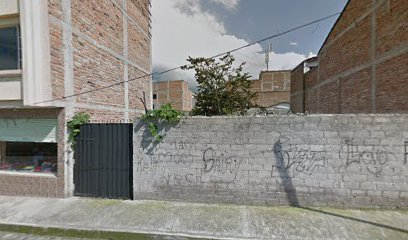
ShotUp
Discover the vibrant nightlife of Otavalo at ShotUp Bar, where expertly crafted cocktails and live music create an unforgettable experience.
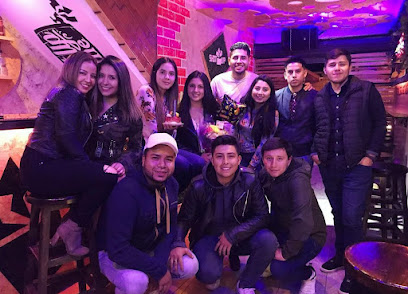
La Guarida del duende
Experience the vibrant atmosphere and rich flavors of Otavalo at La Guarida del Duende, your go-to bar for relaxation and local culture.
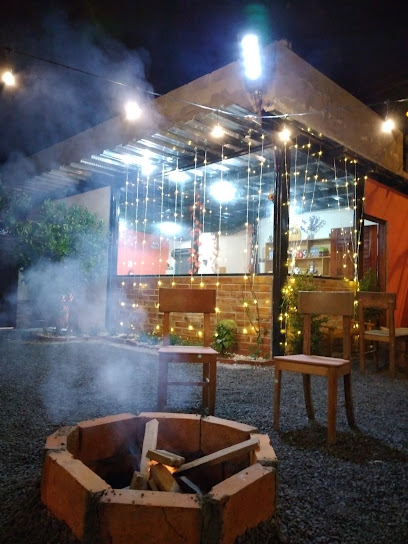
Local Phrases
-
- Hello¡Saludos!
[sah-loo-dohs] - Goodbye¡Adiós!
[ah-dee-ohs] - Yes¡Sí!
[see] - No¡No!
[noh] - Please/You're welcomePor favor/De nada
[por fah-vor/deh nah-dah] - Thank you¡Gracias!
[grah-see-ahs] - Excuse me/Sorry¡Perdón!
[pehr-dohn] - How are you?¿Cómo estás?
[koh-moh ehs-tahs] - Fine. And you?Bien. ¿Y tú?
[byen. ee too] - Do you speak English?¿Hablas inglés?
[ah-blahs een-glehs] - I don't understandNo entiendo
[noh ehn-tee-ehn-doh]
- Hello¡Saludos!
-
- I'd like to see the menu, pleaseMe gustaría ver el menú, por favor
[meh goos-tah-ree-ah vehr ehl meh-noo, por fah-vor] - I don't eat meatNo como carne
[noh koh-moh kahr-neh] - Cheers!¡Salud!
[sah-lood] - I would like to pay, pleaseMe gustaría pagar, por favor
[meh goos-tah-ree-ah pah-gahr, por fah-vor]
- I'd like to see the menu, pleaseMe gustaría ver el menú, por favor
-
- Help!¡Ayuda!
[ah-yoo-dah] - Go away!¡Vete!
[veh-teh] - Call the Police!¡Llama a la Policía!
[yah-mah ah lah poh-lee-see-ah] - Call a doctor!¡Llama a un doctor!
[yah-mah ah oon dohk-tohr] - I'm lostEstoy perdido
[ehs-toy pehr-dee-doh] - I'm illEstoy enfermo
[ehs-toy ehn-fehr-moh]
- Help!¡Ayuda!
-
- I'd like to buy...Me gustaría comprar...
[meh goos-tah-ree-ah kohm-prahr...] - I'm just lookingSolo estoy mirando
[soh-loh ehs-toy mee-rahn-doh] - How much is it?¿Cuánto cuesta?
[kwan-toh kwehs-tah] - That's too expensiveEso es demasiado caro
[eh-soh ehs deh-mah-syah-doh kah-roh] - Can you lower the price?¿Puedes bajar el precio?
[pweh-dehs bah-har ehl pree-syoh]
- I'd like to buy...Me gustaría comprar...
-
- What time is it?¿Qué hora es?
[keh oh-rah ehs] - It's one o'clockEs la una
[ehs lah oo-nah] - Half past (10)Las diez y media
[lahs d'yehs ee meh-dee-ah] - MorningMañana
[mah-nyah-nah] - AfternoonTarde
[tahr-deh] - EveningNoche
[noh-cheh] - YesterdayAyer
[ah-yehr] - TodayHoy
[oy] - TomorrowMañana
[mah-nyah-nah] - 1Uno
[oo-noh] - 2Dos
[dohs] - 3Tres
[trehs] - 4Cuatro
[kwah-troh] - 5Cinco
[seen-koh] - 6Seis
[says] - 7Siete
[syeh-teh] - 8Ocho
[oh-choh] - 9Nueve
[nweh-veh] - 10Diez
[dyehs]
- What time is it?¿Qué hora es?
-
- Where's a/the...?¿Dónde está...?
[dohn-deh ehs-tah] - What's the address?¿Cuál es la dirección?
[kwahl ehs lah dee-rehk-syohn] - Can you show me (on the map)?¿Puedes mostrarme (en el mapa)?
[pweh-dehs mohs-trahr-meh (ehn ehl mah-pah)] - When's the next (bus)?¿Cuándo es el próximo (autobús)?
[kwan-doh ehs ehl prohk-see-moh (ow-toh-boos)] - A ticket (to ....)Un boleto (a ....)
[oon boh-leh-toh (ah)]
- Where's a/the...?¿Dónde está...?
History of Otavalo
-
Before the Spanish conquest, the area of Otavalo was inhabited by the Otavalo tribe, part of the larger Caranqui group. The Otavalos were known for their advanced agricultural practices and skilled craftsmanship, particularly in textiles.
-
In the late 15th century, the Inca Empire expanded into northern Ecuador, including Otavalo. The Incas imposed their administrative and social structures, yet they allowed the Otavalo people to maintain their traditional weaving practices, which later became a significant cultural hallmark.
-
The Spanish arrived in the 1530s, bringing with them drastic changes. The indigenous people of Otavalo were subjected to the encomienda system, which forced them into labor for Spanish landowners. Despite these hardships, the Otavalo maintained and adapted their weaving traditions, which began to gain wider recognition.
-
During the colonial period, Otavalo became a significant textile production center. The town's location along important trade routes facilitated the exchange of goods. The Spanish introduced new techniques and materials, which the Otavalo people skillfully incorporated into their traditional weaving, enhancing the quality and diversity of their textiles.
-
In the early 19th century, Ecuador fought for and gained independence from Spain. Otavalo played a role in the liberation movements, and post-independence, the town began to develop more autonomously. The Otavalo people's resilience and cultural pride became more pronounced during this period.
-
Today, Otavalo is renowned worldwide for its vibrant indigenous market, where traditional crafts, especially textiles, are sold. The town has become a cultural hub, attracting tourists who are eager to experience its rich history and vibrant traditions. The Otavalo people continue to celebrate their heritage through festivals, music, and dance, maintaining a strong cultural identity.
-
One of the most significant cultural events in Otavalo is the Inti Raymi Festival, also known as the Festival of the Sun. Celebrated in June, this festival honors the Inca sun god Inti and marks the winter solstice. It features traditional music, dance, and rituals, reflecting the town's deep-rooted indigenous traditions.
Otavalo Essentials
-
Otavalo is located in the Imbabura Province of Ecuador. The nearest international airport is Mariscal Sucre International Airport in Quito, approximately 90 kilometers away. From Quito, you can take a bus from the Carcelén bus terminal to Otavalo, which takes about 2 hours. Alternatively, you can hire a taxi or a private shuttle service for a more comfortable journey.
-
Otavalo is a small town, and many of its attractions are within walking distance. For longer trips, local taxis are readily available and relatively inexpensive. Public buses operate within the town and connect to nearby villages and towns. Renting a car is also an option if you wish to explore the surrounding areas at your own pace.
-
The official currency in Ecuador is the US Dollar (USD). Credit cards are accepted in most hotels, restaurants, and shops in Otavalo, but it is advisable to carry some cash, especially for purchases at the local markets. ATMs are available in Otavalo, so you can withdraw cash if needed.
-
Otavalo is generally a safe destination for tourists. However, it is advisable to take standard precautions. Avoid walking alone at night, especially in poorly lit areas. Keep an eye on your belongings in crowded places, such as the Otavalo Market. While there are no specific high-crime areas targeting tourists, staying vigilant and aware of your surroundings is always wise.
-
In case of emergency, dial 911 for immediate assistance. The local police station and medical facilities are available in Otavalo. It is recommended to have travel insurance that covers medical emergencies. For minor health issues, there are pharmacies in the town where you can purchase over-the-counter medications.
-
Fashion: Do dress modestly, especially when visiting religious sites. Avoid wearing overly revealing clothing. Religion: Do respect local customs and traditions. Always cover your head when entering churches. Public Transport: Do be respectful and give up your seat to elderly passengers. Don't eat or drink on public transport. Greetings: Do greet people with a handshake and a smile. A slight bow of the head is also a sign of respect. Eating & Drinking: Do try local delicacies and accept food offerings graciously. Don't refuse hospitality, as it is considered impolite.
-
To experience Otavalo like a local, visit the Plaza de los Ponchos, the famous Otavalo Market, especially on Saturdays when it is at its busiest. Engage with locals, as they are often friendly and willing to share stories about their culture and traditions. Don’t miss the Peguche Waterfall, a significant natural and cultural site. For a unique experience, participate in local festivities such as the Inti Raymi festival, which celebrates the summer solstice with music, dance, and traditional rituals.
Trending Landmark in Otavalo
-
Plaza de Ponchos
-
Peguche Waterfall
-
Cabañas del Lago
-
Parque del Condor
-
Mirador San Miguel Arcangel
-
HOSTAL LA ROSA OTAVALO
-
Pucará de Rumicucho / Ruins / Ruinss
-
Quitsato Solar Clock
-
Puertolago Country Inn & Resort
-
La Cosecha Coffee & Bakery
-
El Lechero
-
Parroquia San Francisco
-
Antigua Fabrica San Pedro
-
Waterfall Taxopamba
-
Hotel Doña Esther & Árbol de Montalvo restaurante
Nearby Cities to Otavalo
-
Things To Do in Ibarra
-
Things To Do in Quito
-
Things To Do in Mindo
-
Things To Do in Tena
-
Things To Do in Pasto
-
Things To Do in Ambato
-
Things To Do in Macas
-
Things To Do in Manta
-
Things To Do in Popayán
-
Things To Do in Guayaquil
-
Things To Do in Cuenca
-
Things To Do in Salinas
-
Things To Do in Cali
-
Things To Do in Neiva
-
Things To Do in Loja











